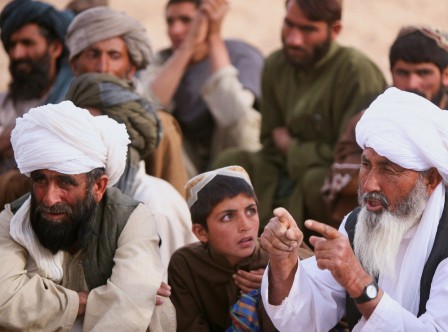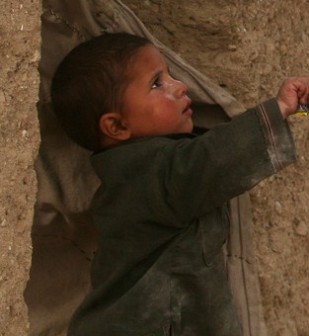Afghanistan: US And NATO Are Still Losing “Hearts And Minds”
The military operation in Marjah, launched in February 2010, was the first deployment after the surge of 30,000 additional troops decided by the Obama administration. The planning of the operation emphasized the needs of the Afghan people, and the importance of winning “hearts and minds”. However, according to a new report just released by the International Council on Security and Development (ICOS), this objective was not met. The reality on the ground did not match the rhetoric, and the attack could turn out to be a recruiting tool for the Taliban.
The ICOS report reviews the local perception of the operation from more than 400 Afghan men from Marjah, Lashkar Gah and Kandahar interviewed by the ICOS in March 2010. The report reveals that Operation Moshtarak has contributed to “high levels of anger among local Afghans”, with 61 percent of those interviewed feeling “more negative about NATO forces than before the military offensive”. In other words, the objective of winning “hearts and minds”-one of the fundamental tenets of the new counter-insurgency strategy- was not met.
The report finds a few key factors at plays, and mistakes made that could translate into more recruits for the Taliban, especially in the context of a much larger city such as Kandahar.
The legitimate grievance of the people of Marjah are used by the Taliban who will seek to recruit the region’s angry young men. Of those interviewed, 95 percent believed more young Afghans have joined the Taliban in the last year. 78 percent of the respondents were “often or always angry”, and 45 percent stated they were “angry at the NATO occupation, civilian casualties and night raids”.
The report says that Operation Moshtarak, and similar operations in the future, provide a perfect propaganda tool for the Taliban in their recruitment strategy. The report recommends the adoption of a new “Counter insurgency impact equation to balance any negative impact, and ensure that the positive impact is greater than the negative impact”.
Another point highlighted by the report has to do with the refugee situation created by the offensive, and the shortcomings to deal with it. The report found that despite advance planning, very little aid or infrastructure was made available for refugees. 97 percent of Afghans interviewed by ICOS said that the operation had led to new flow of internally displaced people. Thousands of displaced Afghans were forced to move to non existent or overcrowded refugee camps with insufficient food, medical supplies and shelters.
59 percent of those interviewed believed the Taliban will return to Marjah after the operation. 67 percent did not support a strong NATO-ISAF presence in their province, and 71 percent stated they wanted NATO forces to leave. Afghans are also very sceptical about NATO’s chances to win against the Taliban with 67 percent of those interviewed stating they did not believe “NATO and the Afghan government would win against the Taliban”, and 14 percent saying that “NATO would never win”.
“The lack of humanitarian planning has been a propaganda victory for the Taliban, who will try to use the grievances of local Afghans to radicalize and recruit young men,” said Jorrit Kamminga Director of Policy Research at ICOS.
To read the full report from the International Council on Security and Development click here.
Related Articles















You must be logged in to post a comment Login